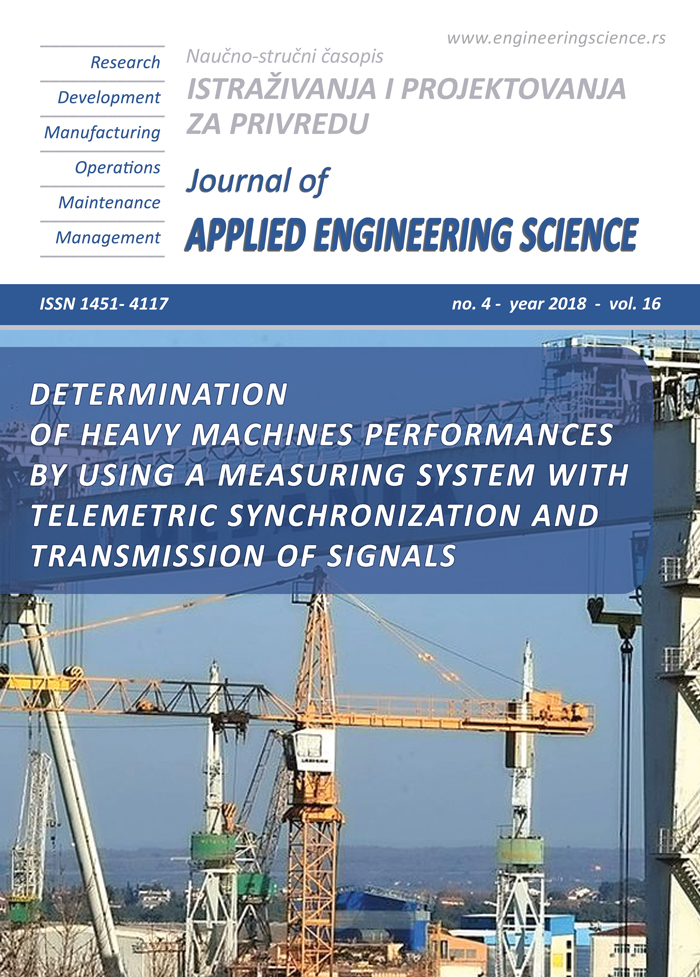POLYMODEL DESCRIPTION AND QUALITATIVE ANALYSIS OF PROBLEMS FOR MEASUREMENT-COMPUTER OPERATIONS PLANNING IN CYBERPHYSICAL SYSTEMS
Abstract
The paper proposes a multimodal description of the cyberphysical systems functioning (CPS), which are multifunctional hardware and software systems intended for receiving (transmitting), storing, processing and forming control actions intended for both service objects (SO) performing a specified set of targets and not part of the CPS, and to ensure its own reliable operation. This description is based on the original dynamic interpretation of the corresponding processes. For concretization in the article, the planning stage of measurement-computing operations (MCO), conducted by the CPS both for determining its location and the position of the SO, is considered. The consideration of the MCO is caused by their special importance in solving the SO management problems. The paper shows how the problem of MCO planning can be achieved with the help of Pontryagin's maximum principle and reduce to a two-point boundary value problem. In this case, the task of planning the MCO is formulated as the task of finding the optimal program control, which ensures obtaining the required accuracy of the CPS location and SO for the minimum time (or with the minimum energy costs for the implementation of the MCO). Traditionally, tasks of this class (scheduling problems) are solved using mathematical programming methods. The proposed use of the optimal control theory methods for solving scheduling problems makes it possible to improve the quality of planning results (including increasing the efficiency of obtaining a plan, reducing the cost of resources when implementing it). Information on practical implementation of the developed models and algorithms is given.
References
1. Boltyanskij V.G. Mathematical methods of optimal control. Nauka, Moscow, 1969 (in Russian).
2. Kupriyanovskij V.P., Namiot D.E., Sinyagov S.A. (2016) Cyber-physical systems as a base for digital economy. International Journal of Open Information Technologies. 4(2). S. 18-24.
3. Kalinin V.N., Sokolov B.V. 1987. Dinamicheskaya model' i algoritm optimal'nogo planirovaniya kompleksa rabot s zapretami na preryvanie/ Automation and Remote Control. №1. S.106–114.
4. Lee E.B., Marcus L. Foundations of Optimal Control Theory. Nauka, Moscow, 1972.
5. Lyubushin, A. A., Modifications and study of convergence of the method of successive approximations for optimal control problems, Zh. vychisl Mkt. mar. Fiz., 19, No. 6, 1414-1421, 1979.
6. Malyshev V.V., Krasil'shchikov M.N., Karlov V.I., Optimization of observation and control of flying vehicles (Moscow, Mashinostroenie, 1989)
7. Okhtilev M. Yu., Sokolov B.V., Yusupov R. M. Intellectual technologies for monitoring the state and managing the structural dynamics of complex technical objects. Moscow: Nauka, 2006. 410 p.
8. Sokolov B.V., YUsupov R.M. Kompleksnoe modelirovanie funkcionirovaniya avtomatizirovannoj sistemy upravleniya navigacionnymi kosmicheskimi apparatami // Problemy upravleniya i informatiki. 2002. №5. S.103–117.
9. Tanaev, B.C., and V.B. Shkurba. 1975. Vvedenie v teoriju raspisanij [Introduction to scheduling theory]. Moscow: Nauka. 256 p.
10. Chernous’ko, F.L. and Kolmanovskii, V.B., Optimal’noe upravlenie pri sluchainykh vozmushcheniyakh (Optimal Control under Random Disturbances), Moscow: Nauka, 1978.
11. Ackoff R.L. The Art of Problem Solving // Wiley-Interscience. New York. 1978.
12. Gonzalez T. & Sahni S. Flow Shop and Job Shop Scheduling: Complexity and Approximation, Operations Research. 1978. №26. P.36–52
13. http://litsam.ru.
14. Wolf W. Cyber-physical systems //Computer. – 2009. – №. 3. – С. 88-89.

